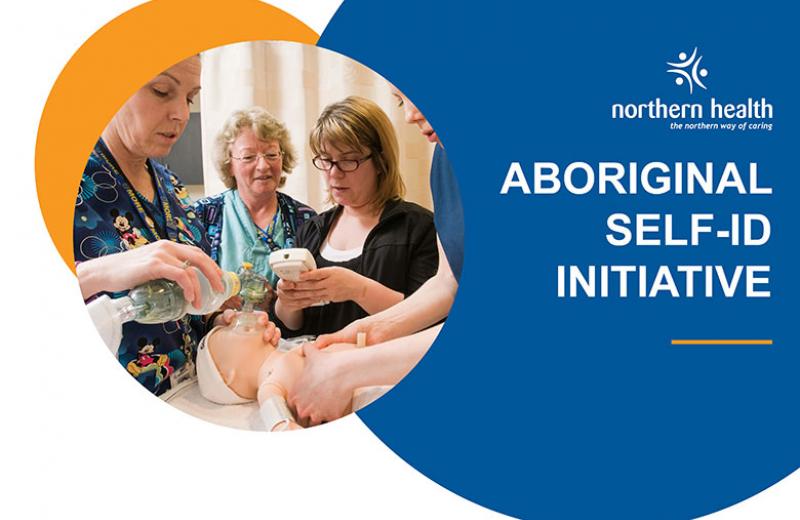Making sure that the health care system is culturally safe for Indigenous Peoples is one of Northern Health’s (NH) top priorities.
What is cultural safety?
The goal of cultural safety is for all people to feel respected and safe when they interact with the health care system.
Culturally safe health care services are free of racism and discrimination. Cultural Safety means that people have support to draw strengths from their identity, culture, and community.
What is the Aboriginal Self-ID Initiative?
One of the ways that NH is working to make the health care system more culturally safe is through our Aboriginal Self-ID Initiative, which asks NH employees to identify as Aboriginal or non-Aboriginal. The goal of the initiative, which first began in 2016, is to see if the NH workforce is representative of the people that we serve.
To achieve this goal, we need an ongoing understanding of what our workforce looks like. This will help us make informed decisions, to remove any barriers that may exist, and to promote inclusion. It also helps us set realistic goals around recruiting and retaining Indigenous professionals.
The Aboriginal Self-ID Initiative and Truth and Reconciliation
Northern Health’s Aboriginal Self-ID initiative aligns with the Truth and Reconciliation Commission (TRC).
The TRC is a part of the Indian Residential School Settlement Agreement and its mandate was to inform all Canadians about the truth of what happened in residential schools. In 2017, the TRC released ninety-four Calls to Action, seven of which are specifically related to the field of health care.
These seven recommendations range from addressing gaps in health between Aboriginal and non-Aboriginal Canadians to bringing change within the health care system. Two sub-recommendations address all levels of government, pointing out the need to:
- Increase the number of Aboriginal professionals working in health-care.
- Ensure retention of Aboriginal health care providers in and serving Aboriginal communities.
This work is guided by the Northern Partnership Accord, which was signed in May 2012 between NH, Northern First Nations, and the First Nations Health Authority. One of the main purposes of this agreement is to involve First Nations leadership in the planning, delivery, and monitoring of health services that impact First Nations peoples and communities in the Northern region.
Where do staff self-ID?
Completing the Self-ID form is simple and staff can complete it in five short steps:
- Log into i-Site
- Navigate to the left-hand menu and click “Request/Change My Information”
- Select “Change Aboriginal Identity”
- Choose between: “Aboriginal”, “Non-Aboriginal”, or “No Response” from the drop-down menu
- You’re done! Go grab a coffee!
Is asking someone to self-ID discriminatory?
Sometimes people wonder if being asked to self-ID is a discriminatory act.
Under the Canadian Human Rights Act, it’s not a discriminatory practice to collect information if it’s intended to be used to eliminate discrimination of certain groups of individuals.
NH understands that the act of identifying can be uncomfortable for a variety of reasons. The Aboriginal Self-ID Initiative is voluntary and your status can be changed at any time. Self-identifying will not affect employment with NH.
Learn more:
- Read more on how to participate in the Self-ID Initiative for NH Employees
- Check out the Northern First Nations Health and Wellness Plan
- Learn about the Truth and Reconciliation Commission of Canada: Calls to Action
- Visit the First Nations Health Authority website
If you have any questions or concerns about the Aboriginal Self-ID initiative, please reach out to the Indigenous Health, Northern Health team at: Indigneous.Health@northernhealth.ca














Comments